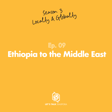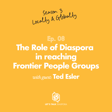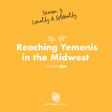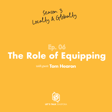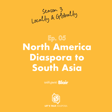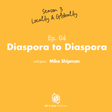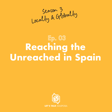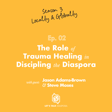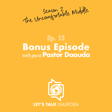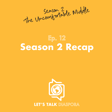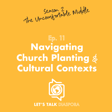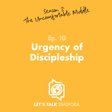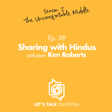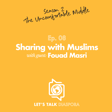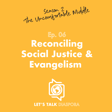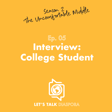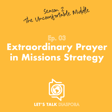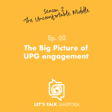
Connecting with People
In Season 2, Episode 4 of "Let's Talk Diaspora," hosts Bud and Rebecca discuss the crucial topic of connecting with people within the diaspora. They emphasize that connecting is a vital phase in diaspora missions, aiming to build relationships, foster understanding, and create opportunities for spiritual conversations. The hosts share practical insights and personal stories on various ways to initiate connections.
They highlight the value of learning basic phrases in the language of the people you're trying to connect with and recount stories from their experiences, demonstrating the power of language in building rapport. They also underscore the importance of finding suitable points of engagement, such as ethnic markets, festivals, and places where diaspora individuals gather.
The hosts delve into connecting with refugees and international students, suggesting joining organizations or ministries that work with these groups. They share creative ideas like assisting with lawn care during Ramadan and participating in cultural food gatherings on college campuses. The hosts also touch on connecting with professionals in the diaspora, stressing the untapped potential of building relationships with businesspeople and affluent individuals.
Throughout the episode, Bud and Rebecca caution against enabling dependency and advocate for genuine relationships founded on respect and understanding. They emphasize that connecting takes time and effort, encouraging listeners to bridge cultural gaps, foster hospitality, and engage in intentional conversations. The hosts remind listeners that every connection matters in sharing the gospel and making a positive impact on the lives of those in the diaspora.
Resources:
Training Video on researching UPG Populations
International Student Resources:
Worldwide International Student Ministry Network
Get your Haredi Jewish Prayer Guide and access to many more resources at https://upgnorthamerica.com/resources/
